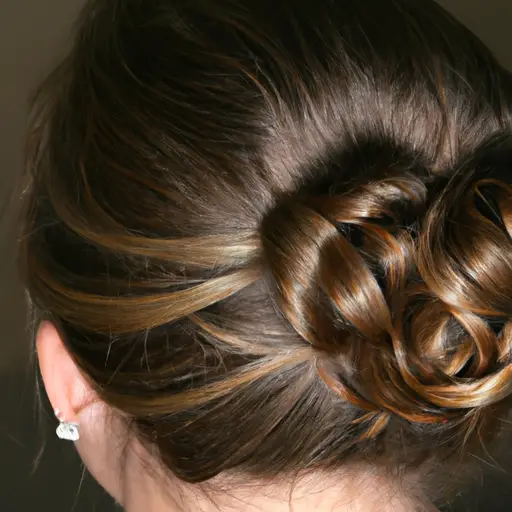Achieving Natural, Sensitive-Skin-Friendly Makeup Look
Welcome to My Guide for Perfectly Natural Makeup on Sensitive Skin!
Hi there, and welcome to my guide for all things makeup and sensitive skin related! I’m excited to share my expertise with you and help you navigate the world of natural makeup options for sensitive skin. If you have sensitive skin like me, you know the struggle of finding makeup that won’t irritate or break out your skin. That’s why I’m here to share some tips and tricks that have helped me along the way.First off, let me just emphasize the importance of using natural makeup on your sensitive skin. Synthetic ingredients in traditional makeup can lead to breakouts, rashes, and irritation. Natural makeup contains ingredients that are gentler on the skin and won’t cause as many harsh reactions. It’s a game-changer! If you’re not convinced yet, check out this article I found on finding the right makeup for your skin tone to learn more about the benefits of natural makeup. Trust me, your skin will thank you.
Figuring Out My Skin Type: Is It Sensitive or What?
Okay, listen up folks. Before we jump into the great world of natural makeup, we have to figure out if we actually have sensitive skin. It’s not always obvious, and I know that from experience! The last thing we want is to put something on our face that’s going to start a fire, am I right? So, let’s take a step back and figure out if our skin is sensitive or not.
First things first, let’s clarify what sensitive skin actually is. According to my dermatologist, it’s skin that is easily irritated by external factors, like the weather or certain ingredients. It can lead to redness, dryness, and even itchiness. If this sounds like you, congrats! You have sensitive skin. If not, you can keep listening, but be warned that some of these tips might not be as helpful for you.
To figure out if your skin is sensitive or not, try paying close attention to how it reacts to different products. Does it get red and itchy after trying a new moisturizer? Does your face feel like it’s on fire after using certain makeup brands? These are all signs that your skin might be on the sensitive side.
Choose Natural Ingredients for Happy Skin
Next up, it’s time to choose your ingredients wisely, homies. If you’ve got sensitive skin like me, natural ingredients will be your saving grace. Not only are they generally less harsh on the skin, but they can actually provide your skin with some nourishment. Bonus!
So what are some natural ingredients to look for? Firstly, opt for mineral-based makeup like zinc oxide and titanium dioxide. These ingredients are gentle on the skin and provide natural sun protection! Another ingredient to look out for is aloe vera, which is known for its soothing properties. Jojoba oil is also amazing for hydrating the skin, and shea butter is perfect for those dry patches. Basically, look for ingredients that actually benefit your skin, rather than just cover it up.

Pro tip: When shopping for makeup, look for brands that use eco-friendly packaging too. That way, you’re doing your bit for the environment while taking care of yourself.
Get to Know Your Makeup Products
Hey, it’s me again. Now that you’ve identified your skin type and chosen natural ingredients, it’s time to talk about knowing your makeup products. As someone with sensitive skin, it’s important to take the time to really get to know what you’re putting on your face.
Types of Makeup Products for Sensitive Skin
First things first, let’s talk about the different types of makeup products that are best for those with sensitive skin. Powder foundations are typically a great option because they contain fewer ingredients than liquid foundations. Tinted moisturizers and BB creams can also be good choices, as they’re light and usually free of harsh chemicals. When it comes to eyeliners, opt for pencil liners over liquid or gel, as these can be easier to apply and less likely to irritate the skin. For mascara, look for ones that are fragrance-free and hypoallergenic.
Reading Labels
When shopping for makeup products, always read the labels carefully. Look for products that are labeled as hypoallergenic, fragrance-free, and non-comedogenic. If you’re unsure about a particular ingredient, do some research before using it. Some common chemicals and additives in makeup, such as sulfates and parabens, can be known irritants for sensitive skin.
Testing Products
Before applying any new product to your face, it’s important to do a patch test. Apply a small amount to the inside of your wrist or behind your ear and wait at least 24 hours to see if any irritation occurs. If you don’t experience any irritation, you can safely use the product on your face.
By taking the time to get to know your makeup products, you can avoid irritating your sensitive skin and create a flawless look that you feel confident in.
Get Your Skin Ready!
Before applying makeup, it’s essential to prepare your skin. For me, that means cleansing my skin thoroughly with a gentle cleanser. It’s important to make sure that your skin is free of any dirt or debris that might affect the makeup’s application and longevity.
Once I’ve cleansed my skin, I like to apply a nourishing serum or moisturizer to hydrate my skin. It helps create a smooth surface for the makeup to go on, and it also prevents the makeup from looking dry and patchy.
If you have particularly sensitive skin, it’s crucial to choose a moisturizer that’s gentle and non-comedogenic. Look for products that don’t contain harsh chemicals, artificial fragrance, or alcohol, which can irritate sensitive skin.
After moisturizing, I like to let my skin absorb the product for a few minutes before applying any makeup. It gives the moisturizer time to sink in, and it also allows my skin to feel refreshed and ready for makeup application.
Overall, taking care of your skin before applying makeup is key to achieving a flawless, natural look. Don’t skip this step and make sure to give your skin the love and care it deserves!
6. Application Techniques: My Tips for a Flawless Finish
Now that you’ve identified your skin type and chosen natural ingredients for your makeup, it’s time to apply it. Here are some tips and tricks that I’ve found work well for me:
– Start with a clean face: I always cleanse my skin prior to applying my makeup. This removes any dirt or debris that may clog my pores, and provides a smooth base for my foundation.
– Use a light hand: Less is more when it comes to applying makeup. I prefer to apply my foundation and concealer with a beauty blender sponge, as it gives a flawless and natural-looking finish.
– Consider your tools: The type of brushes you use can make a big difference in how your makeup looks. For example, a fluffy powder brush works well for applying loose powder, while a small and firm brush is perfect for applying blush.
– Test for irritations: Before you start your entire makeup routine, try testing a small amount of each product on a small, inconspicuous area of your skin. This will help you identify if you have any reactions to the product before you apply it to your entire face.
– Set your look: Once you’ve applied all your makeup, you want it to stay put all day. I like to set my look with a light dusting of translucent powder or a setting spray. This will keep everything in place and reduce any excess shine.
Remember, application techniques are all about personal preference and what works best for your skin type. Don’t be afraid to experiment and try new techniques until you find what works for you!
The Final Touches – Yay, I’m Almost Done!
Alright beauties, we’re almost there! Now it’s time to add those final touches to our natural makeup look. First and foremost, we want to set our foundation and concealer with a natural powder.
I personally love using a loose powder with a fluffy brush to lightly apply it on my T-zone and other areas of my face that tend to get oily throughout the day. If you have dry skin, try a pressed powder or skip powder altogether and just use a setting spray to keep everything in place.
Next up, blush! When it comes to natural makeup for sensitive skin, we want to avoid anything too shimmery or sparkly. Opt for a matte blush in a shade that compliments your skin tone. Lightly swirl it on the apples of your cheeks for a subtle pop of color.
Finally, it’s time to accentuate those lashes. Mascara can be a tricky one for those with sensitive eyes and skin, so make sure to choose a natural formula that won’t irritate your eyes. I like to wiggle the wand at the base of my lashes and then brush upwards for a natural-looking lift.
And voila, we’re finished! Remember, natural makeup is all about enhancing your natural beauty and feeling your best. Don’t worry about achieving perfection, just focus on feeling confident and comfortable in your own skin.
That’s a Wrap! Tips for Achieving the Perfect Look with Natural Makeup for Sensitive Skin
Okay, folks, after all this chatter about sensitive skin and natural makeup, it’s time to wrap up this blog. We’ve covered a lot of ground so far, but let’s summarize the main takeaways for you:
First things first, we defined sensitive skin and why it’s important to use natural makeup products. We also went over how to identify if you have sensitive skin and choose natural ingredients that benefit your skin. Then, we discussed the types of makeup products that are gentle on sensitive skin and how to prepare your skin for applying makeup.
When it comes to applying makeup, we shared some tips and techniques for achieving flawless foundation and concealer application. And, finally, we finished off with some pointers on applying powder, blush, and mascara to complete your look.
So, there you have it! Some expert tips on how to achieve the perfect look with natural makeup for sensitive skin. Remember to always use products that are gentler on your skin and avoid harsh chemicals. And if all else fails, have fun experimenting and finding what works best for you!






